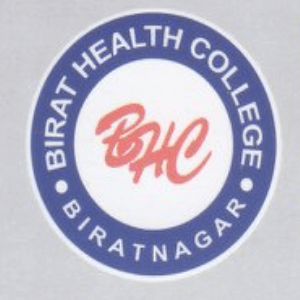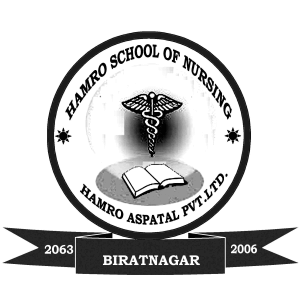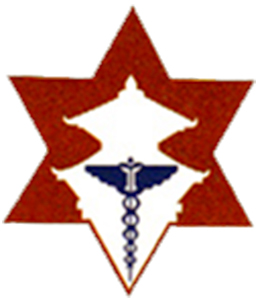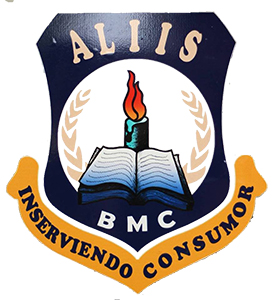Overview
BSc Nursing at Purbanchal University School of Health Sciences (PUSHS), Morang, Nepal
The BSc Nursing program at Purbanchal University School of Health Sciences (PUSHS), located in Biratnagar, Morang, Nepal, and affiliated with Purbanchal University (PU), is a four-year undergraduate degree designed to develop proficient and caring nursing professionals.
This nursing program in Nepal offers a comprehensive curriculum that integrates theoretical knowledge with extensive practical training to prepare graduates for diverse roles in the healthcare sector. The BSc Nursing at PUSHS provides a solid foundation for those seeking a robust health sciences education focused on direct patient care and community health.
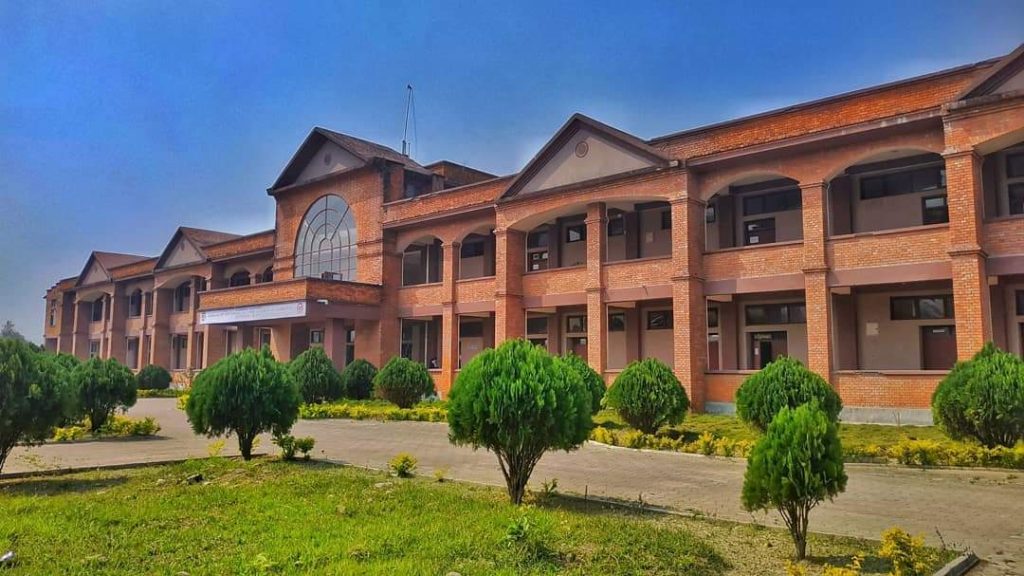
Curriculum Details
The BSc Nursing curriculum at PUSHS is structured to provide a strong base in the core areas of nursing. It is organized into yearly modules, each building upon the previous one to progressively develop students' knowledge and skills. The program includes theoretical courses, laboratory work, and clinical practice in hospitals and community settings.
Core Courses
The core courses form the backbone of the BSc Nursing program. These subjects are fundamental to nursing practice and are covered throughout the four years:
-
Anatomy and Physiology provide an understanding of the human body's structure and function, essential for recognizing normal and abnormal physiological processes.
-
Biochemistry and Nutrition: This course explores the chemical processes within living organisms and the role of nutrition in health and disease, which is crucial for patient care planning.
-
Microbiology and Pathology: This subject covers microorganisms and disease processes, which are vital for understanding infection control and disease management in nursing practice.
-
Pharmacology: Focuses on drugs and their effects on the human body, enabling nurses to administer medications safely and effectively.
-
Fundamentals of Nursing: Introduces basic nursing concepts, principles, and skills for direct patient care.
-
Medical-surgical nursing involves caring for adult patients with medical and surgical conditions affecting various body systems.
-
Community Health Nursing emphasizes public health principles and nursing care within community settings, focusing on health promotion and disease prevention (HPDP) at the population level.
-
Mental Health Nursing: Addresses the nursing care of individuals with mental health issues, promoting mental wellness and providing therapeutic interventions.
-
Child Health Nursing (Pediatric Nursing) focuses on the healthcare needs of adolescents, infants, and children, including growth and development and managing childhood illnesses.
-
Obstetrics and Gynecology Nursing: Covers the nursing care of women during pregnancy, childbirth, and the postpartum period (PP), as well as gynecological health.
-
Nursing Management and Leadership: This program prepares nurses for leadership roles and responsibilities in healthcare settings. It focuses on organization, resource management, and team coordination.
-
Nursing Research and Statistics: Introduces research methodologies and statistical analysis relevant to nursing, enabling evidence-based practice and critical evaluation of research findings.
Specializations and Electives
While the core curriculum is comprehensive, the BSc Nursing program primarily focuses on providing a broad-based nursing education rather than specific specializations at the undergraduate level.
However, the program may offer elective options within specific courses or modules to allow students to explore areas of interest in more detail. The program's strength lies in its thorough grounding in all essential areas of nursing, preparing graduates for a wide range of entry-level nursing positions.
Objectives
The BSc Nursing program at PUSHS aims to achieve the following key objectives:
-
To develop competent nurses who can provide safe, effective, patient-centered care in various healthcare settings.
-
To prepare graduates with a strong base in nursing knowledge, skills, and attitudes aligned with national and international standards of nursing practice.
-
To instill compassionate care principles, emphasizing empathy, respect, and ethical conduct in nursing practice.
-
To empower critical thinking, problem-solving, and decision-making abilities essential for addressing complex patient needs.
-
To foster leadership and management skills necessary for effective teamwork and coordination in healthcare delivery.
-
To enhance a commitment to lifelong learning and professional development in the ever-improving healthcare field.
Scope
The scope of the BSc Nursing degree is extensive, both in Nepal and globally. Graduates are prepared for diverse nursing careers in various sectors:
-
Hospitals: Providing direct patient care in medical, surgical, pediatric, obstetric, and critical care units.
-
Community Health Centers: Working in public health programs, health promotion (HP), and disease prevention (DP) at the community level.
-
Nursing Homes and Long-Term Care Facilities: It covers caring for elderly and chronically ill patients.
-
Schools and Occupational Health Settings: Promoting health and providing essential healthcare in educational and workplace environments.
-
Non-governmental Organizations (NGOs) and INGOs: Contributing to health initiatives and projects focused on specific health issues or populations.
-
Nurse Education and Research: With further education and experience, graduates can pursue nursing education and research careers.
Learning Outcomes
After completing the BSc Nursing program, graduates will be able to:
-
Apply comprehensive biological, behavioral, and nursing science knowledge in patient care.
-
Perform clinical skills proficiently, including assessment, diagnosis, planning, implementation, and evaluation of nursing care.
-
Demonstrate critical thinking and problem-solving abilities in managing patient health issues.
-
Communicate effectively and therapeutically with patients, families, and healthcare teams.
-
Practice ethical nursing care and uphold professional standards of conduct.
-
Utilize nursing management and leadership skills to coordinate and deliver healthcare services efficiently.
-
Engage in evidence-based practice by integrating research findings into nursing care.
-
Promote health and prevent disease at individual, family, and community levels.
Skill Development Modules
The BSc Nursing program at PUSHS incorporates specific modules and strategies for skill development:
-
Clinical Practice: Extensive clinical rotations in affiliated hospitals and community health settings provide hands-on experience in actual patient care scenarios.
-
Nursing Skills Lab: A dedicated nursing skills lab equipped with mannequins and simulation tools allows students to practice and refine basic and advanced nursing procedures in a controlled environment.
-
Simulation-Based Learning: The use of patient simulations helps students develop decision-making skills and respond to various clinical situations without risk to real patients.
-
Workshops and Seminars: Focused workshops and seminars on specific skills and topics enhance practical knowledge and professional competencies.
-
Community-Based Projects: Involvement in community health projects provides practical experience in public health nursing and community engagement.
Teaching Methodology
PUSHS employs a student-centered teaching methodology for the BSc Nursing program, focusing on active learning and engagement:
-
Interactive Lectures: Lectures are designed to encourage student participation and discussion.
-
Small Group Discussions: Facilitate deeper understanding and critical analysis of complex topics.
-
Practical Sessions: Laboratory sessions and clinical practice allow opportunities to apply theoretical understanding and develop practical skills.
-
Case Studies: Analysis of real-life case studies helps students develop problem-solving and clinical reasoning skills.
-
Seminars and Presentations: Student seminars and presentations enhance communication skills and knowledge sharing.
-
Clinical Rotations: Structured clinical rotations under the guidance of experienced nurses and faculty ensure practical competence.
Faculty Expertise
A team delivers the BSc Nursing program at PUSHS of dedicated, experienced, and qualified faculty. The faculty comprises:
-
Experienced Nurses: Registered nurses with advanced degrees and extensive clinical experience in various nursing specialties.
-
Nursing Educators: Dedicated educators with expertise in nursing pedagogy and curriculum development.
-
Healthcare Experts: Visiting lecturers and experts from diverse healthcare fields enrich the learning experience with specialized knowledge and current industry insights.
Admission Requirements
To be eligible to enroll in the BSc Nursing program at PUSHS, applicants typically need to meet the following admission criteria:
-
Completing 10+2 or equivalent education with a science stream (Physics, Chemistry, Biology).
-
Minimum aggregate marks in the qualifying exam as per university regulations.
-
It may require passing an entrance examination conducted by Purbanchal University or PUSHS.
-
Specific requirements may vary; applicants should refer to the official admission for the most current and detailed criteria.
Prospective students are advised to check the PUSHS admissions office or website for the most accurate and updated information on eligibility for nursing programs.
Career Opportunities
The BSc Nursing program graduates from PUSHS have access to varied career opportunities. They can pursue roles such as:
-
Hospital Nurse: Providing direct patient care in various hospital departments.
-
Community Health Nurse: Working in community health programs and clinics.
-
Public Health Nurse: Focusing on population health and disease prevention.
-
School Nurse: Providing healthcare services in school settings.
-
Occupational Health Nurse: Working in workplaces to promote employee health and safety.
-
Nurse Educator (with further studies): Teaching in nursing institutions.
-
Nurse Administrator (with experience and further studies): Managing healthcare units and organizations.
Student Life and Extracurricular Activities
Student life at PUSHS is designed to be enriching and supportive. Beyond academics, students can engage in:
-
Extracurricular Activities: Clubs, societies, sports, cultural events, and community service initiatives.
-
Campus Environment: A peaceful, green campus setting conducive to focused learning and relaxation.
-
Supportive Community: A close-knit student community and accessible faculty and staff.
Scholarships and Financial Aid
While specific scholarship details are best obtained from the PUSHS administration, Purbanchal University and its affiliated colleges often provide nursing scholarships and financial aid options for deserving and needy students. Students are encouraged to inquire about:
-
Merit-Based Scholarships: Awarded for academic excellence.
-
Need-Based Financial Aid: It supports students with financial constraints.
-
Specific Scholarships: Program-specific or category-based scholarships.
Why Choose This Course?
Choosing the BSc Nursing program at PUSHS offers several advantages:
-
Quality Nursing Education: A comprehensive curriculum and effective teaching methods ensure a high standard of education.
-
Practical Skill Development: Extensive clinical practice and skills labs ensure graduates are competent and practice-ready.
-
Career-Oriented Degree: The BSc Nursing degree opens doors to diverse and in-demand nursing careers.
-
Dedicated Faculty: Experienced and qualified faculty committed to student success.
-
Reputable Institution: PUSHS is affiliated with Purbanchal University, a recognized university in Nepal.
Why Choose This College?
PUSHS, as a nursing college in Biratnagar and a leading health sciences college in Nepal, offers:
-
Tranquil Campus Location: A peaceful and natural campus environment conducive to learning.
-
Modern Facilities: Well-equipped labs, library, and infrastructure to support academic and student life.
-
Holistic Development Focus: Emphasis on both academic excellence and personal growth.
-
Contribution to Community Health: Opportunities to engage in community health initiatives.
-
Part of Purbanchal University Nursing: Benefits from the resources and reputation of a well-established university.
Conclusion
The Bachelor of Science in Nursing program at Purbanchal University School of Health Sciences is a robust, career-focused degree designed to produce skilled, compassionate, and ethical nursing professionals. Located in Biratnagar, Nepal, and affiliated with Purbanchal University, PUSHS offers a comprehensive curriculum, practical skill development, and a supportive learning environment.
Contact Purbanchal University School of Health Sciences's administrative office for detailed information on the BSc Nursing course, including fees, scholarships, facilities, counseling, eligibility criteria, etc.



.png)
